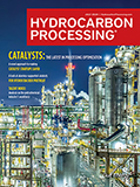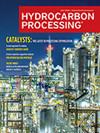Cuban state-run media confirms gasoline shortage
HAVANA, Cuba (Reuters) — Cuban media confirmed that a three-week-old shortage of premium gasoline has left embassies, tourists and others scrambling for fuel, and said it was not clear when it would end.
The online edition of the Communist Youth daily, Juventud Rebelde, published a story from Escambray, a central Sancti Spiritus province newspaper, explaining the measures taken to deal with the shortage.
"Irregularities in the delivery of this fuel, which is not refined in Cuba...led to its substitution with regular gasoline,” the Escambray story said. In Cuba, where the government rarely directly addresses controversial issues, such round-about-forms of confirmation and explanation are not unusual.
The newspaper quoted provincial directors of state-run CIMEX Corp.—which, along with the state oil monopoly, operates most service stations—as saying that four stations have been set aside in the province for diplomats, tourists and others to buy high-octane gasoline for cash, while others were selling what was left in inventory for cash and lower-quality fuel.
Cash-strapped Cuba depends on crisis-racked ally Venezuela, an OPEC member, for about 70% of its fuel needs, including oil for refining and re-exports.
But socialist Venezuela’s subsidized shipments have fallen by as much as 40% since 2014. Potential new suppliers usually want cash due to Cuba's poor credit rating. Most Cubans who own cars, mainly vintage American and Soviet-era models, use lower-quality fuel that can damage modern engines.
Some Cuban state workers are assigned cars and receive gasoline ration cards, including for premium gasoline if they drive modern state-owned vehicles.
For April, the state issued ration cards only for regular gasoline and sent out an internal memo, leaked to social media, announcing that there would be no deliveries of high-octane gasoline, and that inventories would go only to cash-paying customers while they lasted.
Miguel Romero, head of CIMEX’s service station division in Sancti Spiritus, said that after an initial period of confusion, cash sales for premium were normal, while sales to state workers with premium ration cards had dropped to nearly zero, reducing overall consumption of high-octane gasoline by 60%.
Reporting by Marc Frank; Additional reporting by Nelson Acosta; Editing by Leslie Adler






Comments